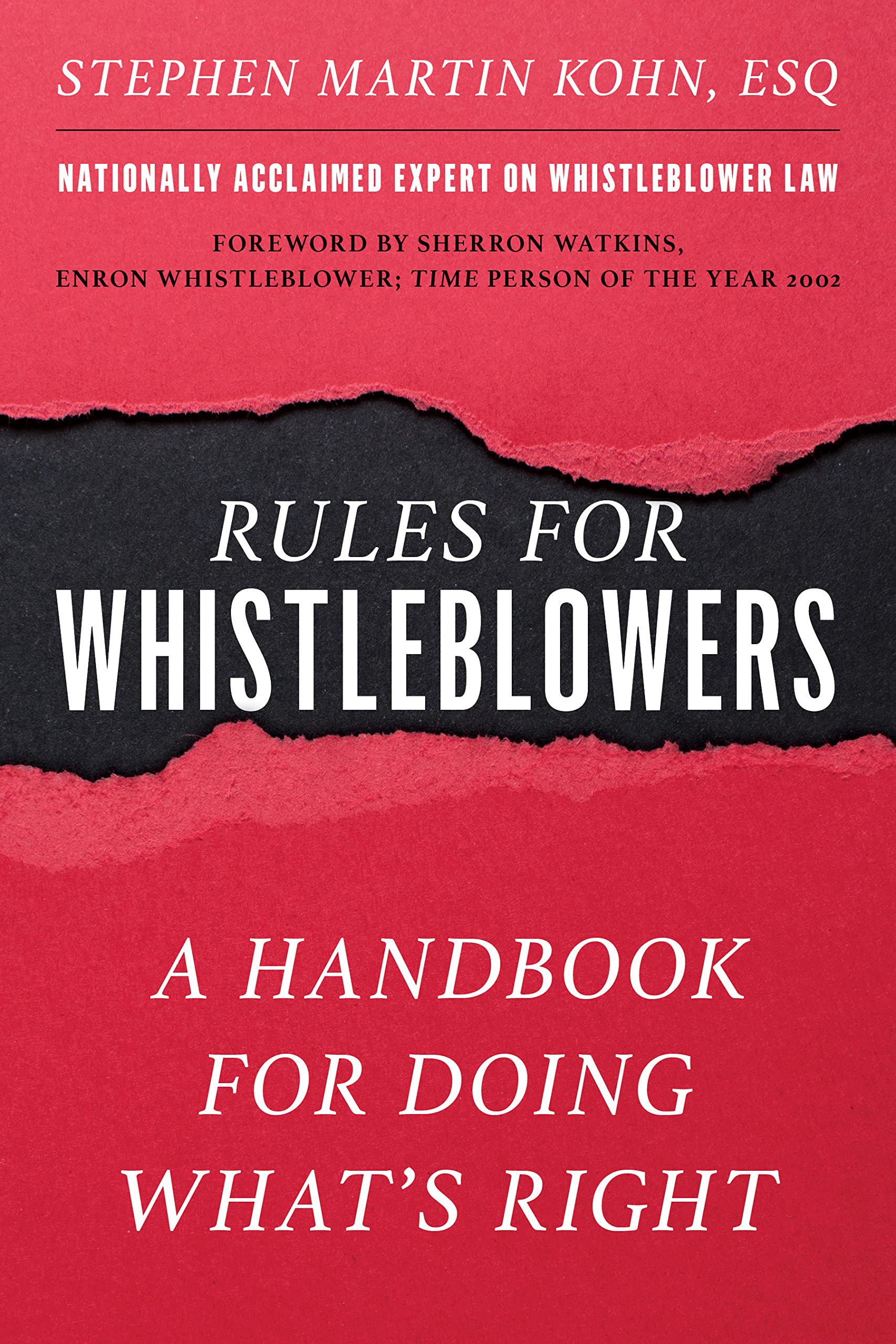Booklife Review

Celebrating and demystifying “modernized laws designed to protect, incentivize, and reward whistleblowers,” like Dodd-Frank, Kohn covers a wide range of specialized scenarios, such as what it takes to expose wrongdoing as a federal employee or as a worker in a private company, how anonymity is or isn’t ensured in different circumstances, whether a whistleblower should speak to the press, what additional complexities go into shining a light on international corruption, and much more. The guidance is pragmatic and specific, tailored to highly particular situations, from a list of factors to consider before removing a document from work to factors to consider to be sure a whistleblower qualifies for a reward.
The history here is inspiring, even as the nuts-and-bolts advice can be intimidating, as Kohn frankly addresses the likelihood of facing employer retaliation for truth telling and the “trench warfare” of trying to win a retaliation case. With persuasive power Kohn lays out why present-day protections and payments for whistleblowers safeguard companies and governments, even as those implicated in fraud will still often lash out at exposure. To that end, Kohn offers a thorough list of steps whistleblowers must take to ensure that they prove their cases and meet every legal standard—simply having the truth on one’s side is not enough. This book is an essential tool for exposing wrongdoing and protecting yourself.
Takeaway: An essential resource for potential whistleblowers, packed with practical advice.
Comparable Titles: Tatiana Bazzichelli’s Whistleblowing for Change, Tom Mueller’s Crisis of Conscience.
Production grades
Cover: B
Design and typography: A
Illustrations: N/A
Editing: A-
Marketing copy: A


